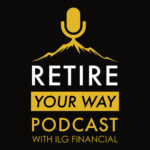 Selecting a financial advisor is an important decision when working toward your financial goals. Similar to choosing a doctor or lawyer, it’s vital to find an advisor whose approach aligns with your needs and values. Interviewing financial advisors allows you to gather insights, evaluate compatibility, and make a well-informed choice. In this guide, we’ll cover key questions to ask during the interview process to help you find the right advisor for your unique financial situation.
Selecting a financial advisor is an important decision when working toward your financial goals. Similar to choosing a doctor or lawyer, it’s vital to find an advisor whose approach aligns with your needs and values. Interviewing financial advisors allows you to gather insights, evaluate compatibility, and make a well-informed choice. In this guide, we’ll cover key questions to ask during the interview process to help you find the right advisor for your unique financial situation.
Interviewing Financial Advisors to Find One You Like and Trust
A financial advisor is someone you’ll be sharing personal details with, so it’s important to feel at ease with them. By interviewing financial advisors, you can find someone you trust and who understands your financial objectives. It’s helpful to speak with at least three different advisors before making your decision.
Here are the questions we recommend asking:
What are Your Specialties or Areas of Expertise?
Understanding the advisor’s specialization is essential. Some advisors focus on retirement planning, while others excel in investment management, estate planning, or tax strategies. Utilize their expertise to address your specific financial needs and work towards a personalized approach to your financial situation.
What Credentials and Certifications Do You Hold?
Look for advisors who hold respected credentials such as Certified Financial Planner (CFP), Chartered Financial Analyst (CFA), or Certified Public Accountant (CPA). These designations often signify a higher level of knowledge, professionalism, and ethical standards.
How Are You Compensated?
Financial advisors are compensated through various fee structures—commissions, fees based on assets under management (AUM), or flat fees. Understanding their compensation model helps you evaluate potential conflicts of interest and adds greater transparency.
How Do You Approach Financial Planning?
A comprehensive financial plan should cover areas like investments, retirement, tax strategies, and estate planning. Inquire about their planning process, whether it’s holistic and customized to your needs, or if it’s a more transactional approach.
How Will You Communicate and Update Me?
Open communication is crucial. Make sure the advisor is willing to provide regular updates and is accessible when you have questions or concerns. Discuss preferred communication methods, frequency of meetings, and how they keep you informed about changes in your investment portfolio.
Can You Provide References?
Ask for references from current or previous clients. Speaking with others who have worked with the advisor can give you insight into their professionalism, responsiveness, and ability to deliver results.
How Will You Tailor Your Advice to My Situation?
Each client’s financial situation is unique and when you’re choosing a financial advisor, you want to be sure they treat you as an individual. Inquire about their process for understanding your goals, risk tolerance, and circumstances, and how they’ll customize their recommendations accordingly.
How Do You Stay Informed About Financial Trends and Changes?
The financial landscape is ever-evolving. A knowledgeable advisor stays current with market trends, tax laws, and industry developments. Ask about their commitment to ongoing education and how they stay informed.
Can You Explain Complex Financial Concepts Clearly?
An effective advisor should simplify complex financial jargon to be certain that you understand the recommendations and strategies. Their ability to communicate clearly is vital for your decision-making process. (It’s a red flag if an advisor can’t thoughtfully respond to your legitimate questions or acts as though it’s a waste of time to explain financial concepts to you.)
How Do You Handle Ethical Dilemmas?
This is one of the most critical questions when you’re choosing a financial advisor. Discuss their approach to ethical dilemmas and potential conflicts of interest. An advisor with a strong commitment to ethical conduct will strive to act in your best interests.
Are You Looking to Partner with a Financial Advisor?
Interviewing financial advisors can be a helpful step in understanding your financial needs and exploring potential options. This process helps you evaluate their skills, communication style, and alignment with your goals. Asking thoughtful questions allows you to assess whether they’re the right match for your financial journey. Trust and compatibility are key factors, so it’s important to choose someone whose approach resonates with your values and long-term vision.
Sources:
- [1] https://www.cnbc.com/2022/02/17/the-cost-of-long-term-care-is-rising-amid-staffing-shortages.html
- [2] https://www.cnbc.com/2021/08/26/most-retirees-will-need-long-term-care-these-are-ways-to-pay-for-it-.html





















 Megan Jones joined the ILG Financial team in 2020 as marketing director. Megan and her husband live in Fredericksburg, VA with their German Short Haired Pointer, Gus. Megan is a graduate of Longwood University and holds a degree in communications. Megan is the oldest of Dave Lopez’s three children and not only enjoys working alongside her father, but also with her cousin, Chase, who joined the ILG Financial team in 2020 as an advisor. Megan is also a fully licensed Life, Health, and Annuity agent. When not at work, Megan enjoys sitting on the back porch with family and friends enjoying food and music.
Megan Jones joined the ILG Financial team in 2020 as marketing director. Megan and her husband live in Fredericksburg, VA with their German Short Haired Pointer, Gus. Megan is a graduate of Longwood University and holds a degree in communications. Megan is the oldest of Dave Lopez’s three children and not only enjoys working alongside her father, but also with her cousin, Chase, who joined the ILG Financial team in 2020 as an advisor. Megan is also a fully licensed Life, Health, and Annuity agent. When not at work, Megan enjoys sitting on the back porch with family and friends enjoying food and music. Chase Lopez joined the ILG Financial team in 2020 as an advisor. Chase is a 2016 James Madison University graduate with a degree in management. Chase has been trained under the tutelage of Dave Lopez, who is not only the founder and managing member of ILG Financial, but also is Chase’s uncle and godfather. He also enjoys working alongside his cousin, Megan, who is Dave’s daughter.
Chase Lopez joined the ILG Financial team in 2020 as an advisor. Chase is a 2016 James Madison University graduate with a degree in management. Chase has been trained under the tutelage of Dave Lopez, who is not only the founder and managing member of ILG Financial, but also is Chase’s uncle and godfather. He also enjoys working alongside his cousin, Megan, who is Dave’s daughter. Amy Anderson joined the ILG Financial team in 2023 as the client relations coordinator. Her responsibilities include scheduling of appointments, annual check-up notifications, and annuity and required minimum distribution assistance. She is a graduate of Harding University with a degree in Computer Information Systems. Amy and her husband have two children and she enjoys reading, crocheting, music and spending time with her family.
Amy Anderson joined the ILG Financial team in 2023 as the client relations coordinator. Her responsibilities include scheduling of appointments, annual check-up notifications, and annuity and required minimum distribution assistance. She is a graduate of Harding University with a degree in Computer Information Systems. Amy and her husband have two children and she enjoys reading, crocheting, music and spending time with her family. Jessica Carson joined the ILG Financial team in 2018 as an agent. Jessica and her husband have four children, two dogs, 3 barn cats, 5 chickens, and three parakeets. She indeed loves her children and pets! When not at work, Jessica enjoys playing the piano and cello as well as traveling and spending time outside with her family, hiking, fishing, and boating.
Jessica Carson joined the ILG Financial team in 2018 as an agent. Jessica and her husband have four children, two dogs, 3 barn cats, 5 chickens, and three parakeets. She indeed loves her children and pets! When not at work, Jessica enjoys playing the piano and cello as well as traveling and spending time outside with her family, hiking, fishing, and boating. Terri Center joined the ILG Financial team in 2019 as client services manager. She handles client records, application processing, and gathering information to provide a professional and friendly experience with all of our clients. Terri is a graduate of Oakland University. She is married and has two children. She enjoys hiking, family time, and puzzle challenging video games. She also likes to share her creativity in her canvas paintings and sewing projects.
Terri Center joined the ILG Financial team in 2019 as client services manager. She handles client records, application processing, and gathering information to provide a professional and friendly experience with all of our clients. Terri is a graduate of Oakland University. She is married and has two children. She enjoys hiking, family time, and puzzle challenging video games. She also likes to share her creativity in her canvas paintings and sewing projects.